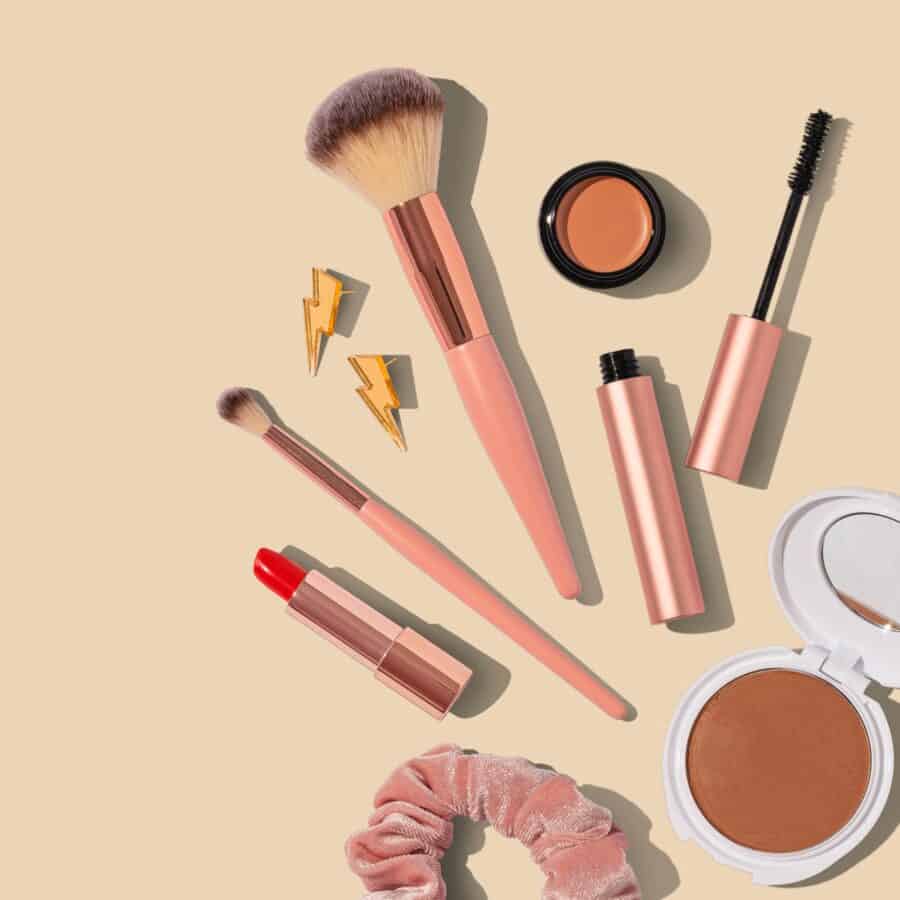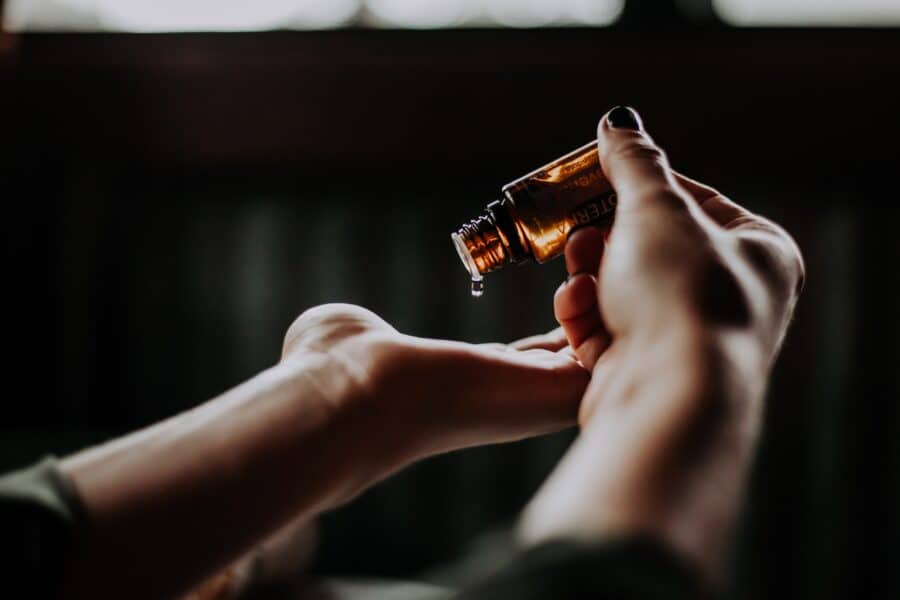What are Natural Cosmetics?
Beauty is an intuitive feeling that is not limited to humans. Even some animals and birds try to decorate themselves to look attractive. However, humans are much smarter, and they use a range of cosmetics. People used lemon, honey, milk, clay, mud, and even some metals to produce beauty products for ages.
However, things changed drastically with the advent of the industrial age, especially from the 20th century onwards. It saw a boom in the cosmetics industry, too. Since natural products are often challenging to source and sometimes expensive, the industry increasingly started using synthetic chemicals.
Fortunately, there has been a resurgence of interest in natural beauty products in recent years. It is because people increasingly realize that synthetic chemicals may cause unforeseeable harm. Moreover, people realize the broader damage caused by the chemical industry to the environment.
Just take an example of plastic microbeads in facewash and other cosmetic products. They are minute, almost invisible to the human eye. Yet, millions of tons of these microbeads are released into the environment. Thus, using natural cosmetics is not just about preventing harm to health but also about protecting the environment and much more.
What are Natural Cosmetics?
So, many people are talking about natural cosmetics, and yet amazingly, there is no single definition of natural cosmetics. Even worse, there are many false explanations of natural cosmetics.
For example, some think that natural cosmetics are free from chemicals. That is partially true. Even natural compounds are chemicals. Nevertheless, the term chemical is more commonly used to define compounds made artificially. Moreover, natural cosmetics may still have added synthetic chemicals.
Further, it is wrong to believe that synthetic chemicals do not exist in nature and are human-made. It is again partially true. Humans produce synthetic chemicals, but they also exist in nature.
Additionally, it is wrong to believe that natural things are harmless. Natural compounds may also be toxic, cause allergies.
So, how can one define natural cosmetics? What are natural beauty products?
It would be correct to say that natural cosmetics are “products made from raw materials sourced from nature, like plants and natural minerals. These sources are renewable and do not harm the environment. They are often processed minimally and in a way that is safe for humans, animals, plants, and the earth. They are carefully selected natural extracts that are good for skin, body, and hair – they promote beauty. As a rule, they should not have added preservatives, petroleum products, and other harsh chemicals.”
Further, it would be correct to say that natural compounds are usually organic (though not necessarily, for example, minerals in clay). Organic compounds are pretty complex and difficult to imitate, explaining their unique benefits. Moreover, natural cosmetics may contain hundreds of compounds working in synergy. Often science has little idea about how these compounds work with each other.
How are natural cosmetics made?
Natural cosmetics may use extracts from plants, microorganisms, fungi, and even insects and animals. However, plant extracts are generally preferred, as they form the primary component in most natural cosmetics.
There are two ways of producing natural cosmetics, each having its pros and cons. The first and the more common way is to buy natural and organic extracts, fragrances, antioxidants and then mix them to create cosmetic products.
The second approach is using in-house extraction of natural compounds. Thus, one may buy natural raw materials in wholesale, like plants, flowers, and so on, and then use specific extracting machines to extract these compounds. For example, many would use supercritical CO2 extraction and ethanol to extract natural components.
As one can guess, the pros of the first method are that it is more straightforward.
One does not have to think about extracting natural compounds. Instead, one may simply buy natural cosmetics raw materials and use them. This is a simpler approach. In this approach, manufacturers can focus on creating cosmetics instead of spending time extracting compounds. However, it also means less control over the quality of natural extracts.
The second methods are more complex. Extracting natural compounds is both a science and art. It may mean a bigger initial investment and also requires massive in-house expertise. This can lead to less variety of products. But then it means greater control over the quality of raw materials. It also may help create unique products.
There is a third approach, too. It is the most straightforward, involving finding a white label or private label manufacturer and getting the products produced by a third party. In this case, there is little control over the manufacturing process, but the business can be started with minimal investments and efforts. Thus, finding white label organic cosmetics manufacturers could be an option for many.
Can cosmetic beauty products be natural?
It is pretty challenging to answer. However, it is worth understanding that not every natural product is natural. Most natural products are not 100% natural. Even the certification that the product is natural does not say much. Each certifying agency has its definition of natural product. For example, some certifying agencies may certify the product as natural if it has a content of natural compounds 80% or above. But that is still not a completely natural product, despite the certificate stating otherwise.
Additionally, it is vital to understand that many natural compounds are now widely and cheaply produced using synthetic methods. Just take an example of vitamins. These are natural compounds. But most supplements contain vitamins that are synthesized at an industrial scale. Thus, natural vitamins are rarely used in supplements or cosmetics.
Things are further made complicated by the use of preservatives. They prevent bacterial overgrowth in cosmetics, help stabilize natural compounds. In addition, they help prolong the shelf life of products. However, they are synthetic chemicals and are not essentially suitable for health.
How do you know if your beauty products are natural?
It is pretty challenging, even for experts. Generally, third-party certification is regarded as the most trusted way of knowing if the product is natural or not. However, as already stated, even third-party labs may have different definitions of natural products.
Moreover, it is worth knowing that most labs would certify a product as natural if its content of natural ingredients is above 95%. But, unfortunately, it means that they might contain as many as 5% non-natural substances.
Thus, it would still be essential to know more about the third-party lab and how they define natural products.
Further, one should pay particular attention to seemingly less relevant ingredients. One should pay special attention to the components like E200, or U202, and so on. Such numbers define colors, preservatives, antioxidants, thickeners, acidity regulators, flavor enhancers, antibiotics, glazing agents added to foods and cosmetics. Regretfully, these numbers do not say anything to a consumer or most people. These ingredients may be natural or synthetic. One can use online databases to learn more about these codes used to describe certain compounds.
Are natural cosmetics good for your skin?
It is one more controversial topic. Most people buy natural cosmetics believing that they are safer when compared to synthetic cosmetics. That may be true, but that is not always the case.
It is worth understanding that even natural extracts may be toxic. For example, they might contain heavy metals. In addition, larger organic molecules are more likely to cause allergic reactions than smaller synthetic molecules.
Nonetheless, the natural extract does have some distinct benefits. Many may not be tested by science, but they are well tested by traditions. Moreover, unlike synthetic compounds, natural extracts are less likely to cause unforeseeable side effects like causing worsening of the autoimmune condition.
However, more importantly, natural compounds are usually safer for humans and the environment. They are safer for animals, plants, oceans, and even the air. Thus, when discussing the safety of natural cosmetics, one needs to think in a broader context.
Thus, it is good to understand that natural compounds are generally safer. However, one should still keep in mind that side effects with natural cosmetics are possible.
What are the best natural beauty products?
There are many manufacturers of skincare and cosmetics that are natural. In addition, one may find natural skin care products, natural beauty products, and much more. Below are some of the well-known manufacturers of natural cosmetics.
It’s pure is a company that has herbal hair colors, hair and scalp treatment, hair conditioners, and a range of organic oils. All its products are known to be pure and natural.
Similarly, Odylique, a company in the UK, has a long history of producing natural cosmetics. Many of its products are made by hand. It has a complete range of natural cosmetics like moisturizers, skin care products, cleansers, and many more.
Sante is a natural cosmetics producer from Germany. It is also one of the companies with a complete range of cosmetics, from natural skincare to hair masks. They even have products for men. Their website also provides excellent information about various natural ingredients.
Logona is yet another company from Germany with high manufacturing standards. You name the product, and they have. Thus, they have everything for skincare, facials, body care, teeth, make-up, men, and much more.
Lavera is a company that is especially good at making natural skin care cosmetics. It also has products for babies and children, natural toothpaste, and much more.
To conclude, natural beauty products have some specific benefits. For example, they are generally safer not only for humans but also for the environment. However, finding high-quality natural beauty products could be a challenge. Thus, one would need to do some research to find out if any product is truly natural, organic & safe.
Did natural cosmetic products catch your interest? Our natural white-label skincare line infused with CBD is one click away. Inquiries for non-CBD formulations are welcome!



